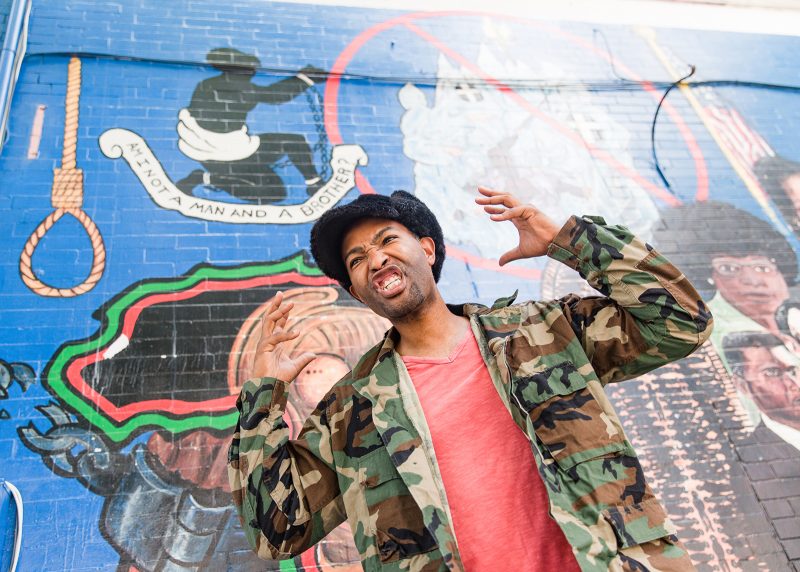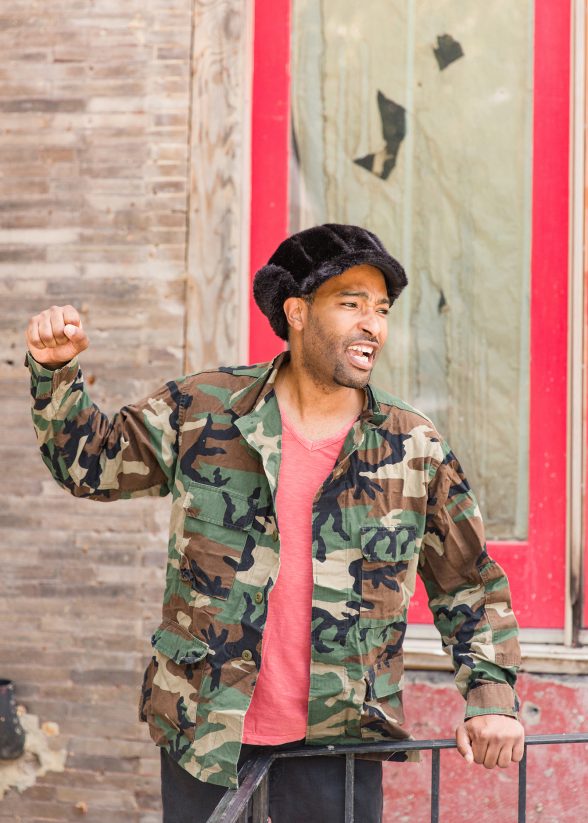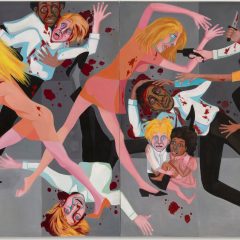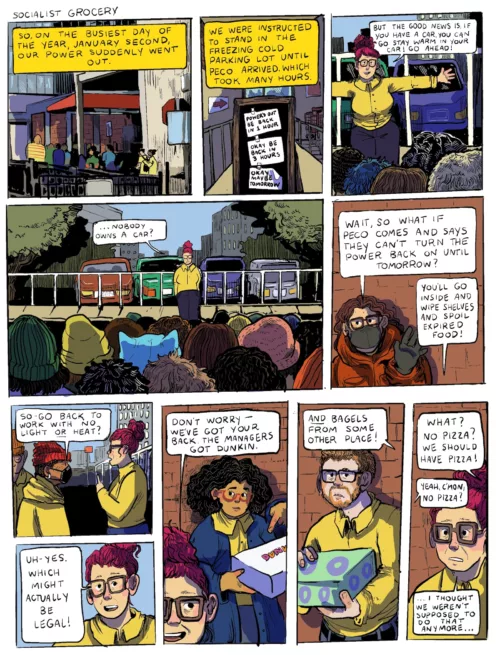
1969
Richard Nixon was President. The war in Vietnam was raging (in Vietnam, they called it the American War). Support for the war, which initially divided the country, had begun to erode, even among Nixon’s base, the so-called “silent majority.” Protesters against the war began to fill our streets. The trial of the Chicago 8, individuals who disrupted the Democratic National Convention the previous year, was underway. The assassination of Martin Luther King, Jr., in April, 1968, was fresh on the minds of many Americans. A man walked on the moon.
In the early morning hours of December 21, 1969, the Chicago police, in coordination with the FBI, raided an apartment that housed members of the Chicago branch of the Black Panthers Party (BPP), allegedly on information that the BPP had collected arms there. Two young African American men were killed in the raid — Fred Hampton, then the 21-year old charismatic head of the Chicago branch of the BPP, and Mark Clark.
Mr. Hampton was shot multiple times in his bed that night, where he laid beside his pregnant
fiancée, who was dragged away by the police during the incident (and later arrested). Years later, it was revealed that Hampton had been drugged that evening by a paid government informant who had infiltrated the group. Nearly 100 gunshots were fired by the police. Only one shot was attributed to the BPP, and that apparently was fired involuntarily by Mr. Clark, who was guarding the premises, after he was shot by the police.**
“To My Unborn Child”
“To My Unborn Child: A Love Letter from Fred Hampton,” now showing as part of the Fringe Festival at the Philadelphia Ethical Society on Rittenhouse Square, is an imaginary elegy from Hampton to his unborn son. Richard Bradford wrote the play – it runs for seventy-five minutes — and his solo performance portraying Fred Hampton is riveting. Set in the bedroom in which Hampton was killed, with his blood-soaked bed front and center on stage, the play is a lyrical and poignant tour de force through the times and environment in which Hampton lived and perished, and presents a snapshot of the history of the Civil Rights Movement, from the murder of Emmett Till, to the mission and assassination of Martin Luther King, Jr., to the Chicago Riots of 1968. It also weaves through the complicated history, political philosophy, and activities of the BPP, which were always focused upon confronting corrupt systems of power and seeking economic justice for African Americans in our country.
The mission of Fred Hampton and the Black Panthers
The Black Panthers, formerly the Black Panther Party for Self-Defense, was formed in Oakland, California by Huey Newton and Bobby Seale in 1966. Eldridge Cleaver was one of its early leaders. Initially, the BPP focused upon combating the abuse of African Americans by police (“policing the police”). The organization eventually expanded to provide community service programs to African Americans and generally to promote the welfare of the African American community nationwide. Before his untimely death, Fred Hampton envisioned forming an activist organization, a “Rainbow Coalition” (later realized by Jesse Jackson), which would be comprised of working class and poor people of all races.
Persecution of the Black Panthers by the FBI
While the Black Panthers armed themselves and doctrinally were revolutionaries, they were not proponents of violence or of the violent overthrow of the government. Nevertheless, J. Edgar Hoover branded them a terrorist group. Indeed, after the death of Martin Luther King, Jr., Hoover called the Panthers “the single most dangerous threat to the internal security of the United States.”
Hoover apparently feared “the rising of a black messiah,” and he created a secret operation called COINTELPRO (referring to a counterintelligence program), which was designed primarily to “disrupt, misdirect, and otherwise neutralize” the BPP. The extent of the FBI’s involvement in this enterprise, however, was not known until 1971, when activists broke into an FBI office in Media, Pennsylvania, and published a trove of previously undisclosed FBI documents.
No law enforcement officer or other government agent ever was prosecuted for the killing of Fred Hampton. There were indictments against various officials for obstruction of justice in the aftermath of Hampton’s death, but those cases were all dismissed. In a subsequent civil suit filed by various parties, including Fred Hampton’s estate, however, the government quickly entered into a settlement with the parties after the court found that the government had withheld critical documents, documents which revealed its conspiratorial role in the events surrounding Hampton’s death.***

The relevance today of Fred Hampton’s story
“To My Unborn Child” makes no attempt directly to connect Fred Hampton’s story to issues that beset the African American community today, but the connection is as obvious as it is heartbreaking and disturbing. Today, almost fifty years later, blacks in America too often continue to be harassed by the police. Disproportionately large numbers of black males have been incarcerated in our prisons or remain chronically unemployed. Large swaths of our country remain segregated. Disproportionately large numbers of black families remain poor, and their access to education and child care and medical care is limited.
If Fred Hampton was alive today, he would be fighting many of the same battles he was fighting when he met his death at the hands of the authorities. Sadly, his message to his son, and to the rest of us – to keep the struggle alive – is as relevant in 2017 as it was in 1969. The Civil Rights Movement is far from over.
Richard Bradford’s “To My Unborn Child: A Love Letter from Fred Hampton” joins what has become a genre of literary and musical missives to our unborn children. Two in particular come to mind, both of which resonate with Bradford’s work, and which highlight the experience of being a black man in America today — 2Pac’s “Letter to My Unborn Child”, and Ta-Nehisi Coates’s powerful Between the World and Me, directed to his adolescent son.
“To My Unborn Child: A Love Letter from Fred Hampton” is a production of the Iron Age Theater. It is directed by John Doyle. Performances will continue through September 22nd.
—
** A narrative of the events of that evening, together with an exposé of the government activity that culminated in the death of Fred Hampton, can found in a comprehensive article by Jeff Cohen and Jeff Gottlieb that appeared in The Nation on December 25, 1976 — “Was Fred Hampton Executed?”. See also Richard Haas’ The Assassination of Fred Hampton: How the FBI and Chicago Police Murdered a Black Panther.
*** The decision of the United States Court of Appeals in that case, Hampton v. Hanrahan, 600 F.2d 600 (7th Circuit 1979), includes an unvarnished version of the entire matter, and constitutes a strong indictment of the conduct of the government both before and after Mr. Hampton’s death.









